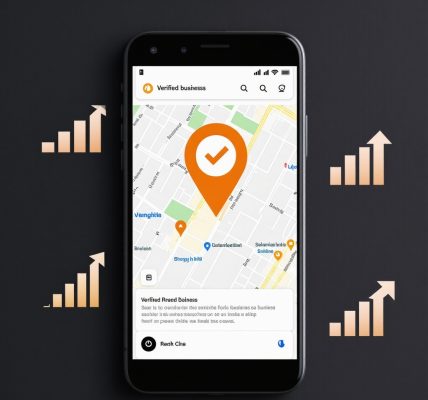Mastering the Art of Keyword Selection for Your GMB Description
Google My Business (GMB) descriptions are a powerful yet often underutilized tool in local SEO. Crafting a description with effective keywords that convert can dramatically enhance your local search visibility and attract the right customers. But what truly sets apart a converting GMB description from a mediocre one? It’s all about strategic keyword integration combined with compelling, user-focused messaging.
Beyond Basics: Discovering LSI and Semantic Keywords for GMB
While primary keywords like “best bakery near me” or “affordable plumbing services” are essential, leveraging Latent Semantic Indexing (LSI) keywords elevates your GMB description’s relevance. These are terms related to your main keywords that Google associates contextually, such as “artisan bread,” “emergency pipe repair,” or “licensed plumber.” Including these enriches your description, helping Google understand your business comprehensively and improving your chances to appear in diverse search queries.
Strategic Placement: How to Use Keywords Organically in GMB Descriptions
Keyword stuffing is a pitfall to avoid. Instead, weave your chosen keywords naturally into sentences that describe your services, unique selling points, and customer benefits. For example, a landscaping business might write: “Our expert landscaping services in Austin include sustainable garden design and maintenance, ensuring your outdoor space thrives year-round.” This approach not only pleases search engines but also resonates with potential customers seeking quality and expertise.
How Can Businesses Identify Which Keywords Truly Drive Conversions on GMB?
Understanding which keywords convert requires analyzing customer intent and behavior. Use tools like Google Keyword Planner or specialized GMB SEO tools to research local search terms with high relevance and conversion potential. Moreover, monitor your GMB insights to track which search queries lead to actions such as calls, direction requests, or website visits. Combining this data enables you to refine your keyword strategy, focusing on terms that attract qualified leads rather than just high traffic.
Case Study Insight: Transforming Local Reach Through Keyword Optimization
Consider a local coffee shop that revamped its GMB description by incorporating keywords like “organic fair-trade coffee,” “cozy workspace,” and “free Wi-Fi in downtown Seattle.” Within weeks, the shop saw increased foot traffic and improved rankings for relevant local searches. This practical example highlights how precise keyword choices connected the business with its target audience, converting searchers into customers effectively.
Integrating Keywords with Compelling Calls to Action
Don’t forget that your GMB description is also a chance to motivate users. Phrases such as “Visit us today for a personalized consultation” or “Call now to schedule your free estimate” paired with relevant keywords can boost engagement rates. This blend of keyword strategy and persuasive language increases the likelihood of conversion from local searchers who find your listing.
For deeper insights on optimizing your Google Business Profile with keyword strategies, explore our comprehensive guide on using GMB business description keywords effectively. Additionally, authoritative SEO resources from Moz provide excellent foundational knowledge on keyword research and local SEO best practices, essential for mastering GMB optimization (Moz Local SEO Guide).
If you found these insights valuable, share your experience or questions below to help our community master Google Business keyword strategies together!
Leveraging User-Generated Content to Enhance Keyword Richness on GMB
User-generated content (UGC) such as customer reviews, Q&A, and posts on your Google Business Profile can significantly enrich your keyword ecosystem. When customers naturally mention specific products, services, or local landmarks in their reviews, these terms become valuable LSI keywords that Google associates with your business. Encouraging authentic, detailed reviews not only improves your reputation but also organically expands your keyword footprint, supporting your overall SEO strategy.
Optimizing GMB Posts with Strategic Keyword Integration
Beyond the static business description, GMB posts offer dynamic opportunities to target trending or seasonal keywords. Craft posts that incorporate localized, niche-specific keywords relevant to current promotions or events. For example, a fitness studio might post: “Join our summer boot camp in Miami to get fit fast!” This fresh content signals activity to Google and helps maintain keyword relevance, which can positively influence your local rankings.
How Can Businesses Balance Keyword Density and Readability in GMB Descriptions?
Striking the right balance between keyword density and natural readability is crucial for effective GMB optimization. Overusing keywords can trigger penalties from Google and deter potential customers due to unnatural phrasing. Experts recommend maintaining keyword density around 1-2% within your description, focusing on semantic relevance rather than repetition. Use synonyms and contextually related phrases to keep your text engaging and informative. Tools like Yoast SEO and SEMrush provide helpful readability and keyword analysis metrics tailored for local SEO content.
Utilizing Competitor Analysis to Refine Your Keyword Strategy
Understanding the keyword strategies of your local competitors offers valuable insights. Analyze competitor GMB profiles to identify frequently targeted keywords and gaps in their descriptions. This intelligence allows you to differentiate your content by incorporating unique keywords or emphasizing services competitors overlook. Competitive analysis tools such as BrightLocal and Whitespark specialize in local SEO competitive research, enabling you to sharpen your keyword targeting for better local visibility.
For a deeper dive into competitive keyword strategies and comprehensive local SEO optimization, explore our expert resources on comprehensive local SEO optimization techniques and GMB SEO audits to enhance local search performance.
To further enrich your local business knowledge, consider reading Moz’s authoritative insights on local SEO, which provide advanced strategies for maximizing your Google Business Profile effectiveness (Moz Local SEO Guide).
We invite you to share your experiences or questions on keyword strategies in GMB descriptions in the comments below, fostering a community of optimized local business success.
Harnessing Advanced Semantic Networks to Elevate GMB Keyword Strategy
Moving beyond traditional keyword research, incorporating advanced semantic networks into your Google My Business description can significantly enhance your local SEO efforts. Semantic networks map relationships between concepts and terms, allowing you to identify not only direct keywords but also nuanced phrases and topic clusters that resonate with your audience’s search intent. By tapping into these networks, you create a rich, contextually layered description that appeals to Google’s sophisticated algorithms and captures a broader range of relevant queries.
For example, instead of only targeting “vegan restaurant downtown,” integrating related concepts such as “plant-based cuisine,” “locally sourced organic ingredients,” and “eco-friendly dining experience” can amplify your profile’s semantic footprint. This approach aligns with Google’s BERT algorithm, which excels at understanding context and intent rather than just keyword frequency (Google AI Blog on BERT).
Implementing Natural Language Processing (NLP) Insights to Refine GMB Copy
Leveraging NLP tools allows businesses to analyze their GMB descriptions and related content through the lens of human language patterns and sentiment. Advanced NLP analysis helps identify which words or phrases evoke positive customer emotions or align with common search queries, enabling you to tailor your messaging for maximum engagement. Moreover, NLP can guide you in avoiding over-optimization by suggesting natural language variations that maintain readability while optimizing for search engines.
Tools such as IBM Watson’s Natural Language Understanding or Google’s Cloud Natural Language API provide deep semantic analysis, sentiment scoring, and entity recognition that can be invaluable for fine-tuning your GMB copy. Integrating these insights ensures your description is both search-friendly and customer-centric, thereby improving conversion rates.
What Role Does Sentiment Analysis Play in Optimizing GMB Descriptions for Local SEO?
Sentiment analysis, a subset of NLP, evaluates the emotional tone behind words in your GMB description and customer reviews. Positive sentiment can enhance your brand image and influence potential customers’ decisions. By incorporating keywords and phrases with positive sentiment, your description becomes more persuasive and trustworthy. Conversely, identifying and mitigating negative sentiment terms helps avoid deterring prospects.
For instance, using terms like “award-winning service,” “trusted by thousands,” or “exceptional customer care” not only boosts keyword relevance but also instills confidence. Monitoring sentiment trends in reviews can also inform keyword updates, ensuring your GMB profile remains aligned with customer perceptions and expectations.
Leveraging Schema Markup and Structured Data to Complement Keyword Strategies
While GMB descriptions are critical, supporting them with structured data on your website enhances overall local SEO impact. Implementing schema markup such as LocalBusiness, Product, or Service schemas adds semantic context that search engines can parse more effectively. This complementary strategy reinforces the keywords used in your GMB profile and signals relevance across the web ecosystem.
Schema.org’s LocalBusiness schema provides granular properties like address, openingHours, and geo coordinates, which help search engines associate your business with precise local queries. Integrating this markup alongside your optimized GMB description creates a cohesive, authoritative local presence that outperforms competitors relying solely on surface-level keyword tactics.
Advanced Geo-Targeting Techniques: Embedding Location-Specific Keywords with Precision
Geo-targeting in keywords goes beyond merely adding your city or neighborhood name. It involves understanding micro-moments and hyper-local search habits prevalent among your target customers. For example, including landmark references, local slang, or regional event names can fine-tune your reach, making your GMB listing appear in extremely specific, high-intent searches.
Suppose you operate a boutique hotel near a famous park or historic site; mentioning keywords like “steps from Central Park,” “near the historic Old Town district,” or “walking distance to City Museum” can attract visitors searching for accommodation with those precise locational benefits. This nuanced application of geo-keywords increases relevance and click-through rates.
How Can Businesses Effectively Track the Impact of Advanced Keyword and Semantic Strategies on GMB Performance?
Tracking these sophisticated strategies requires integrating multiple data sources. Google My Business Insights provide baseline metrics like search queries, views, and actions, but coupling these with tools like Google Analytics, local rank trackers (BrightLocal, Whitespark), and NLP-based sentiment dashboards offers a multi-dimensional performance overview.
Setting up UTM parameters and event tracking enables you to correlate specific keyword-driven campaigns with user behavior and conversions. Additionally, analyzing shifts in local search rankings for semantic keyword clusters over time helps validate the effectiveness of your optimized GMB description. Regular audits and A/B testing of description variants can refine your approach further, ensuring continual improvement.
For those seeking a deep dive into cutting-edge local SEO tactics, consider exploring resources such as the Moz Blog on Semantic Search and Local SEO, which offers expert insights on integrating semantic strategies into local business optimization.
Ready to elevate your Google My Business profile with advanced keyword strategies? Connect with our SEO experts for a personalized analysis and start transforming your local search presence today!
Deepening Keyword Context with Ontological Mapping Techniques
Ontological mapping transcends traditional semantic networks by establishing a hierarchical and relational structure between concepts relevant to your business domain. This nuanced framework allows you to identify and embed multifaceted keyword clusters within your GMB description, reflecting complex user intents and search behaviors. For instance, a medical clinic might link terms like “pediatric care,” “family health services,” and “preventive screenings” within an ontological map to create a comprehensive, interconnected keyword strategy that resonates with diverse patient queries.
Harnessing AI-Powered Content Generation for Precision Keyword Integration
Artificial intelligence-driven copywriting tools, when guided by expert keyword frameworks, can generate GMB descriptions that balance semantic richness and natural language flow. Leveraging models fine-tuned for local SEO contexts ensures that keyword placement aligns with intent-driven phrasing, minimizing redundancy while maximizing impact. However, human oversight remains paramount to preserve brand voice authenticity and ensure contextual accuracy, especially when integrating complex keyword schemas.
How Can Businesses Validate the Semantic Relevance of Keywords in Real-Time GMB Updates?
Real-time validation of keyword semantic relevance requires leveraging dynamic SEO analytics platforms that integrate natural language processing and machine learning algorithms. Tools like SEMrush’s Keyword Magic Tool and BrightLocal’s Local Rank Tracker offer real-time insights into keyword performance and contextual relevance across multiple local search queries. Furthermore, API integrations with Google’s GMB dashboard can automate sentiment and semantic analysis of new customer reviews and Q&A, enabling prompt keyword strategy refinements that maintain optimal local SEO efficacy.
Authoritative Insight: The Role of Google’s BERT and MUM in Local Business Ranking
Google’s BERT (Bidirectional Encoder Representations from Transformers) and the more recent MUM (Multitask Unified Model) represent significant leaps in search understanding, emphasizing context, intent, and multimodal information processing. As outlined by Google’s AI Blog (Introducing MUM: A New AI Milestone for Understanding Information), these models enable Google to parse complex queries and content, enhancing local search relevancy beyond keyword matching. This evolution underscores the critical need for businesses to adopt semantic, intent-focused keyword strategies within their GMB descriptions to align with Google’s sophisticated ranking algorithms.
Integrating Voice Search Optimization into Your GMB Keyword Strategy
With voice-activated assistants increasingly mediating local searches, optimizing your GMB description for conversational and question-based keywords becomes imperative. Incorporate natural language phrases and long-tail queries reflective of voice search patterns, such as “Where can I find gluten-free bakeries nearby?” or “What are the business hours for emergency plumbers in downtown?” This approach enhances discoverability among users employing voice queries, a growing segment of local search traffic.
Multilingual Keyword Strategies for Diverse Local Audiences
In multicultural markets, crafting GMB descriptions that strategically incorporate multilingual keywords can dramatically broaden your local reach. Analyze prevalent languages and dialects within your service area and integrate corresponding keywords that maintain semantic integrity and cultural relevance. This tactic not only improves inclusivity but also positions your business prominently in diverse local search results, catering to a wider demographic spectrum.
Ready to revolutionize your Google My Business presence with cutting-edge keyword tactics and semantic strategies? Contact our SEO specialists today for a bespoke consultation designed to propel your local search dominance.
Frequently Asked Questions (FAQ)
What are Latent Semantic Indexing (LSI) keywords and why are they important for GMB descriptions?
LSI keywords are terms related contextually to your main keywords that help search engines understand the broader topic and relevance of your business. Incorporating LSI keywords in your Google My Business description enriches semantic context, improving your local search visibility by capturing diverse but relevant search queries beyond exact keyword matches.
How can businesses avoid keyword stuffing while still optimizing GMB descriptions effectively?
To avoid keyword stuffing, integrate keywords naturally within well-crafted sentences that highlight your services and benefits. Maintain keyword density around 1-2%, focus on semantic relevance, and use synonyms or related phrases. Prioritize readability for users while ensuring search engines recognize the contextual importance of your keywords.
What tools are recommended to identify high-conversion keywords for local SEO on GMB?
Tools such as Google Keyword Planner, BrightLocal, Whitespark, SEMrush, and Google My Business Insights are invaluable. They help analyze local search intent, track relevant queries leading to customer actions, and provide real-time performance data, enabling you to refine your keyword strategy with a focus on attracting qualified leads.
How do semantic networks and ontological mapping enhance keyword strategies beyond traditional keyword research?
Semantic networks and ontological mapping establish relationships between concepts relevant to your business, enabling you to target complex user intents and topic clusters. This structured, nuanced keyword integration aligns with sophisticated search algorithms like Google’s BERT and MUM, resulting in richer, more contextually relevant GMB descriptions that better satisfy diverse search queries.
What role does sentiment analysis play in optimizing GMB descriptions and customer reviews?
Sentiment analysis evaluates the emotional tone of your content and reviews, guiding you to use positively charged keywords that build trust and encourage conversions. By emphasizing phrases that evoke confidence and satisfaction, and mitigating negative sentiment, you enhance your brand’s appeal and align your GMB profile with favorable customer perceptions.
How can businesses effectively track the impact of advanced keyword and semantic strategies on their GMB performance?
Combining Google My Business Insights with tools like Google Analytics, local rank trackers (e.g., BrightLocal, Whitespark), and NLP sentiment dashboards offers a comprehensive view of performance. Setting UTM parameters and performing A/B testing on descriptions help correlate specific keyword efforts with user engagement and conversion metrics, enabling continuous optimization.
Why is voice search optimization critical for modern GMB keyword strategies?
With the increasing use of voice assistants for local queries, optimizing for conversational, question-based, and long-tail keywords improves discoverability. Incorporating natural language phrases that mimic how people speak ensures your GMB listing is relevant to voice searchers, a rapidly growing segment in local search traffic.
How can multilingual keyword strategies expand a business’s local reach on GMB?
In multicultural markets, integrating keywords in prevalent local languages and dialects broadens your audience and enhances inclusivity. Maintaining semantic and cultural relevance in multilingual descriptions positions your business to appear prominently in diverse search results, catering to a wider demographic and improving overall local search performance.
What is the significance of schema markup in complementing GMB keyword strategies?
Schema markup adds structured semantic data to your website that supports and reinforces the keywords used in your GMB description. Using schemas like LocalBusiness helps search engines better understand your business location, offerings, and hours, enhancing local SEO signals beyond your GMB profile alone.
Can AI-powered content generation tools reliably assist in crafting optimized GMB descriptions?
AI tools can efficiently produce keyword-rich, semantically coherent GMB descriptions aligned with local SEO best practices. However, expert human oversight is essential to ensure authenticity, brand voice consistency, and contextual accuracy, particularly when integrating complex keyword frameworks and semantic strategies.
Trusted External Sources
- Moz Local SEO Guide – Offers foundational and advanced strategies on local SEO, keyword research, and Google My Business optimization, providing authoritative insights into effective local search tactics.
- Google AI Blog – Provides in-depth information on Google’s BERT and MUM algorithms, essential for understanding modern semantic search mechanisms impacting GMB keyword strategies.
- BrightLocal and Whitespark – Specialized platforms for local SEO competitive analysis and rank tracking, invaluable for refining keyword targeting and measuring GMB performance.
- Schema.org – The definitive resource for structured data and schema markup, detailing how to implement LocalBusiness and related schemas to enhance local SEO signals.
- IBM Watson Natural Language Understanding & Google Cloud Natural Language API Documentation – Resources for leveraging NLP and sentiment analysis tools to optimize GMB descriptions with customer-centric language and semantic precision.
Conclusion
Optimizing your Google My Business description with advanced keyword strategies transcends mere repetition of search terms. By integrating Latent Semantic Indexing keywords, leveraging semantic networks, and applying ontological mapping, businesses can craft rich, contextually layered content aligned with Google’s evolving AI-driven algorithms like BERT and MUM. Combining natural language processing insights, sentiment analysis, and precise geo-targeting further refines your local SEO approach, enhancing discoverability and conversion potential.
Complementary tactics such as schema markup implementation, voice search optimization, multilingual keyword integration, and leveraging AI-powered content generation tools provide a holistic framework to dominate local search landscapes. Crucially, continuous performance tracking through integrated analytics and competitive intelligence ensures your keyword strategy adapts dynamically to market shifts and user intent.
Mastering these sophisticated keyword methodologies empowers your Google Business Profile to resonate authentically with your audience, attract qualified leads, and secure higher local search rankings. Embrace these expert insights to transform your GMB presence into a powerful growth engine. Share your thoughts, ask questions, or explore our related expert content to continue advancing your local SEO mastery today!




I really appreciated the emphasis on integrating Latent Semantic Indexing (LSI) keywords within GMB descriptions. In my experience managing a local boutique, I initially focused solely on primary keywords like “best boutique near me,” but found that our profile wasn’t capturing the full range of potential customers. Once I started including related terms like “handcrafted accessories,” “unique fashion finds,” and “personalized styling,” our local search visibility increased significantly. I also agree that keyword stuffing is a common pitfall; natural, meaningful language resonates better with both Google and customers.
Another insight I found valuable was the importance of analyzing GMB insights to understand which keywords actually drive conversions, not just traffic. It made me realize how essential it is to monitor customer actions like calls or direction requests linked to particular search queries.
One challenge I’ve encountered is balancing the technical SEO side with maintaining an authentic voice that reflects our brand personality. Has anyone else struggled with this tension between optimizing for search and staying genuine in their GMB descriptions? How have you navigated this balance effectively?
Stephanie raised a really insightful point about balancing SEO optimization with maintaining an authentic brand voice in GMB descriptions. From my own experience managing a local landscaping service, the key has been to treat keyword integration as storytelling rather than a checklist. Incorporating LSI keywords naturally within sentences that highlight our unique approaches—even things like “sustainable garden design” or “year-round maintenance services”—helps keep the tone genuine while still signaling relevance to search engines.
I’ve also found that regularly reviewing GMB insights is crucial for understanding which queries actually lead to customer actions, like calls or booking requests. It’s surprising how some keywords that seem popular don’t necessarily convert, so focusing on intent and behavior patterns is a game changer.
One challenge I faced was avoiding the temptation to over-optimize by repeating the same keywords—using synonyms and related terms keeps content fresh and customer-friendly. Does anyone else have tips for maintaining this balance without losing the ‘human’ element, especially when using AI tools that might default to repetitive phrasing?